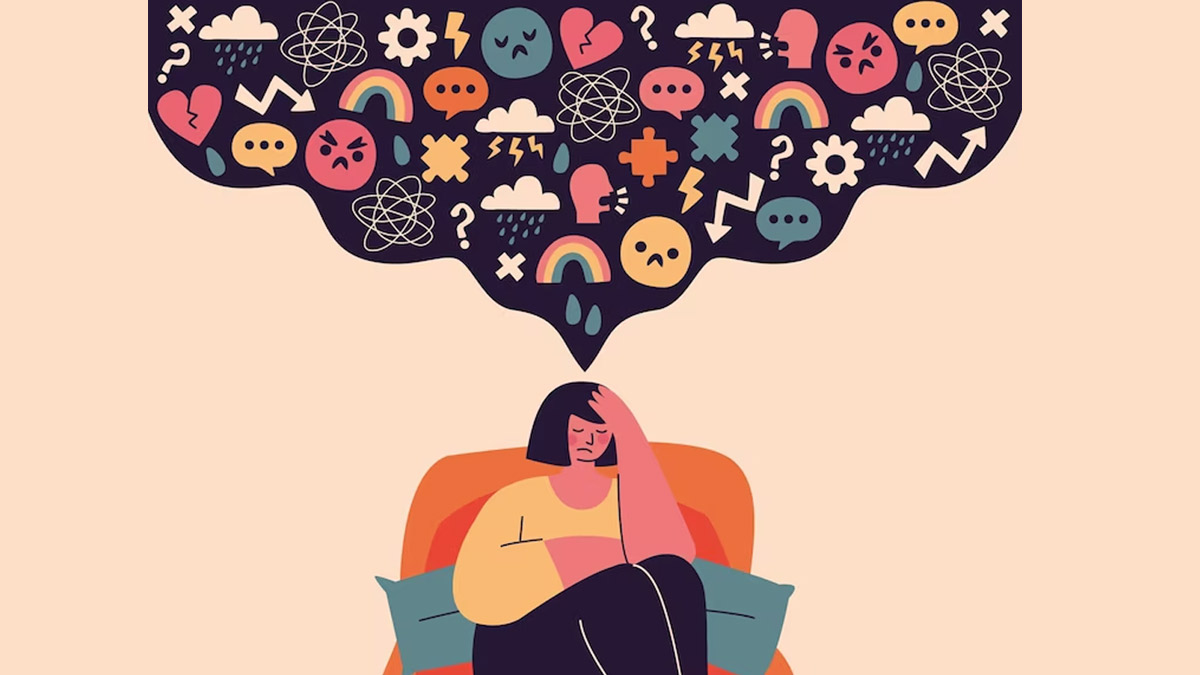
In today's world, people are realising more and more that mental health is just as important as physical health. Our mental well-being is closely connected to how our bodies function and react, and it forms the basis for overall physical wellness. Unfortunately, many individuals are currently facing challenges like depression, anxiety, and burnout, which, if not addressed, can lead to serious health problems such as panic attacks that can greatly disrupt daily life. Resolving mental health issues is incredibly important because it not only affects a person's overall well-being but also their ability to balance work and personal life and build meaningful relationships with others, both socially and within their family.
Table of Content:-
Speaking with the editorial team of OnlyMyHealth, Dr Chandni Tugnait is M.D. (Alternative Medicines), Psychotherapist, Life Coach, Business Coach, NLP Expert, Healer, Founder & Director - Gateway of Healing explains the rise of teleconsultation for mental health support.
Virtual Therapy, also known as teleconsultation, is a modern healthcare service that can be accessed from anywhere using digital platforms such as video calls, phone calls, and messaging. It is a great way to get mental health care remotely and has changed the way healthcare is provided by allowing remote access to mental health support.
Virtual therapy brings several advantages for patients. It allows them to easily access mental health services from the comfort of their homes, ensuring privacy and convenience for both the patient and the psychiatrist. There is no need to spend time and money on travelling. Furthermore, virtual therapy helps in accessing specialists, which can be difficult in certain areas of India. It also plays a role in reducing the persistent stigma associated with mental health by encouraging open discussions and promoting greater awareness and acceptance of mental well-being. This empowering approach enables individuals to seek help and openly discuss their mental health concerns, shares Dr Tugnait.

Also read: Kangana Ranaut's Inspiring Body Transformation For Next Action Movie, Shares Workout Video
The Indian Psychiatric Society's 2021 report highlights the concerning state of mental healthcare in India. With only 9000 psychiatrists and 700 new graduates each year, there is a significant shortage, with just 0.75 psychiatrists per 100,000 individuals, far below the recommended minimum. Virtual therapy gained momentum during the pandemic, addressing challenges like unemployment, grief, economic instability, and psychological distress. Approximately 70 percent of countries worldwide embraced virtual therapy, as reported by the World Health Organization in October 2020, ensuring uninterrupted mental health support despite limitations on in-person care.
The use of teleconsultation and digital health platforms has revolutionised mental health services, allowing individuals to access therapy from their homes and at their convenience. Additionally, virtual therapy has provided immediate and effective support during crises and emergencies. In the wake of the COVID-19 pandemic, virtual therapy has been a lifeline for many individuals struggling with the emotional toll of the crisis, allowing them to receive prompt care without risking their health and safety.
Virtual therapy is an essential asset in modern mental healthcare, offering a convenient, confidential, and secure platform for patients to receive effective and timely care from qualified professionals. As we move towards a more technologically advanced world, virtual therapy will continue to play a pivotal role in providing effective mental health support to those in need, irrespective of their location or circumstances.
Role of Teleconsultation
According to Mr. Arindam Sen, Director of i2i Telesolutions, Virtual therapy has a promising future for growth. With advancing technology and easier access to digital platforms, it is expected to expand greatly. People are recognizing the convenience and effectiveness of remote mental health support. Virtual therapy is especially beneficial in areas with a shortage of psychiatrists and for reaching remote and allows patients to connect with specialists worldwide.
By leveraging technology, virtual therapy enables the provision of mental health support to a larger number of individuals while ensuring convenience for all involved parties. The integration of virtual therapy into healthcare systems and the increasing acceptance of telehealth practices are fueling its rapid growth. As more research supports its effectiveness, virtual therapy will become an essential part of mental healthcare, providing greater accessibility and better outcomes for those in need.
Also watch this video
How we keep this article up to date:
We work with experts and keep a close eye on the latest in health and wellness. Whenever there is a new research or helpful information, we update our articles with accurate and useful advice.
Current Version